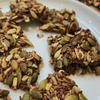8 evidence-based tips to improve your digestion

Did you know, how you eat can completely change the health of your digestive system?
Yes that’s right, HOW you eat rather WHAT you eat can significantly improve bloating, indigestion, bowel motions and overall gut health.
Often we get caught up in changing the food we are eating, removing gluten, dairy, FODMAPS, grains or fruit from the diet, when the real issue is the way you are eating.
As a gut naturopath, getting my patients to reflect on their eating habits is where I like to begin with many of my patients. It’s amazing to hear of their gut improvement when they make very simple changes to how they are eating.
I want to share with you eight of the best evidence-based tips to help you improve your gut health.
Give these eight tips a try and see how your gut health improves.
1.Chew your food
It sounds easy, but many of us don't do this near enough. It is common in our modern day lifestyles, to be eating and multitasking, eating in a rush or mindlessly eating while watching TV.
Chewing is an important part of digestion because the physical breakdown in this early stage helps reduce the stress on the rest of your organs. Chewing also allows saliva and enzymes to chemically break down the food in your mouth, which will help you get more out of your food later on. Aim for 20 chews per mouthful (1).
2. Drink away from meal time
Drinking large amounts of liquid with your meal will dilute the strong acids and enzymes in your stomach, making the breakdown of your food a lot harder. Drink large quantities of liquid at least 30 minutes either side of your meal to ensure you support strong concentrated stomach juices (2).
3. Warm lemon water first thing each morning
Lemon has a bioflavonoid (a type of antioxidant) in it called hesperidin which has a protective effect on your liver and kidneys(3). It also contains citrate that naturally helps your body flush out toxins (4) and citrus flavonoids that support your stomach acid production (5). For the real benefit to occur you need your lemon drink to be strong, 1/2 lemon juiced in warm water is recommended.
Tip: Be mindful not to sip lemon as it can affect the enamel on your teeth.
4. Apple cider vinegar (ACV)
A study has shown that two teaspoons of ACV taken during mealtime has a blood sugar balancing effect if your meal contains complex carbohydrates (6). It is also believed to increase satiety which may help stop overeating (7).
5. Fasting and your gut health
Having a 12-14 hour fast between the last meal of the day and the first meal of the next is a great way for your digestion organs to have a rest and restore. It is also proven to positively change your gut bacteria (8). An example of this would be if you have dinner at 7pm, have breakfast the next day no earlier than 7am. Easy!
6. Stop grazing
Constant eating puts a strain on your digestive system, it doesn't allow; the food to move through with ease, signals of hunger and satiety to be created properly, and for your organs, enzymes and bacteria to have a rest (9). These issues can lead to food hanging around in your gut which can increase your risk of getting small intestinal bacterial overgrowth (SIBO) or having overgrowth of nasty bugs (10).
7. Stop eating at least 3 hours before lying down
Think about this from a gravity point of view. Your body will be way less stressed working with gravity rather than against it. Eating late is also a known trigger for reflux, so if you have a bedtime (or plan to lie down) at 10pm, make sure your last meal is at 7pm (11).
8. Relax, especially at meal times
When stressed your body kicks into fight and flight response. This is the opposite of where you want to be when you eat, your body wants to be in a state of rest and digest. When in fight and flight many of your digestive functions stop, your blood is sent away from digestive organs and your blood sugar becomes imbalanced. When in rest and digest, your body can produce saliva, enzymes needed to digest without blood and energy focusing on digestive processes (12).
Hopefully your digestion is feeling much better! However, if you are still experiencing problems with your gut, it’s time to reach out and for help. While you should continue to eat mindfully implementing the eight evidence-based tips, it sounds like there is something more complex going on that would benefit from targeted expert care.
-
Posted in
Gut Health







